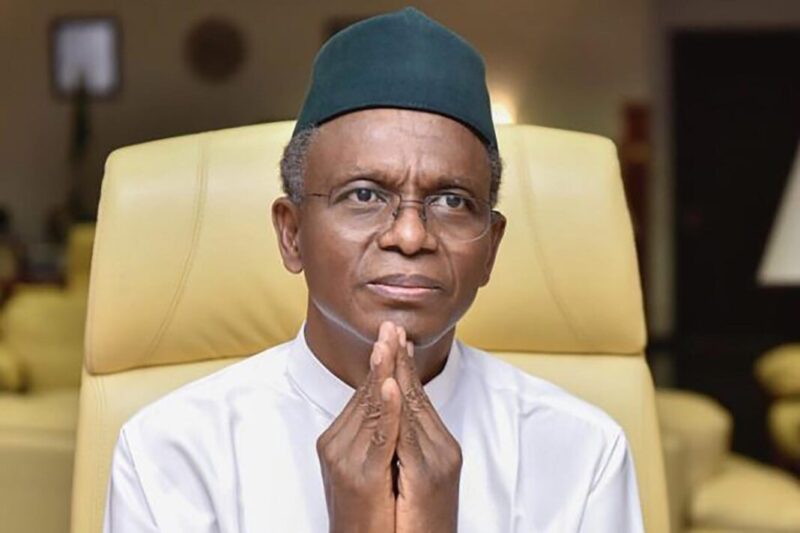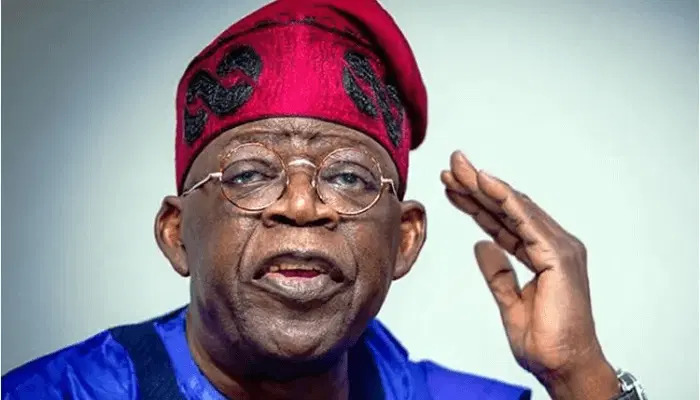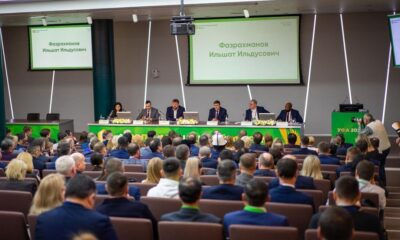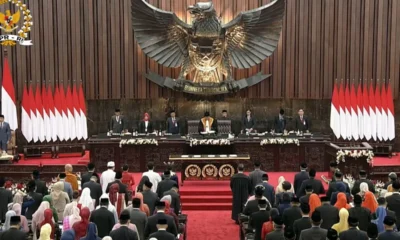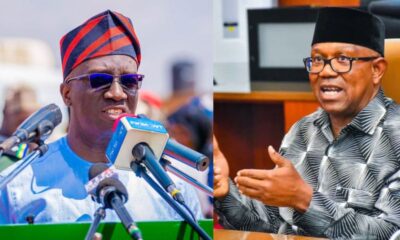Africa
Land Dispute: The Battle Between the Uniform and the Untouchable –By Matthew Ma
The future of Nigeria cannot thrive on the spectacle of public confrontations between its powerful elites. Instead, it must be rooted in robust institutions that uphold established boundaries, adhere to democratic processes, and prioritize the rights of all citizens. Without this foundational shift, we will likely witness an ongoing conflict between those in power, represented by authority figures clad in uniforms, and those who are deemed untouchable within the political and economic hierarchies.

The recent confrontation between Nyesom Wike, the Minister of the Federal Capital Territory (FCT) in Nigeria, and Lieutenant Yerima of the Nigerian Army over a disputed piece of land in Abuja has generated a range of reactions from various parts of Nigeria. Some analysts and critics of Mr. Wike have praised Lieutenant Yerima for his bold stance in confronting the impossible. They assert that by resolutely maintaining his position, he has demonstrated an impressive degree of both bravery and moral integrity. His courage represented a larger fight against systemic issues concerning land ownership and authority in Abuja. On the other hand, Lieutenant Yerima has faced significant criticism from detractors who contend that his response to Minister Wike’s request to vacate the land lacked respect and decorum, particularly given Wike’s status as a senior government official. His attitude exemplifies the complexities of civilian-military relations in Nigeria, where personal beliefs and rights frequently conflict with respect for authority. Depending on one’s perspective, it is clear that Nigerians often take pride in championing various causes, regardless of their merits. In fact, people can be surprisingly loyal, sometimes even to the most questionable individuals. For instance, if the devil were to appear in Nigeria, he might still find some supporters—particularly if he were linked to a Nigerian family—despite any serious wrongdoing he may represent. Loyalty in Nigeria is not merely about agreement or admiration; it’s often an intricate web of familial ties, tribal affiliations, and cultural connections that can blur the lines of right and wrong, even in the face of condemnable behavior.
The confrontation between Nyesom Wike and Lt. Yerima sheds light on the entrenched issues within Nigeria’s governance culture. This incident highlights how power dynamics in the country are frequently dictated not by legal frameworks or principles of justice, but rather by the influence of military authority and political clout. What began as a routine administrative matter evolved into a symbolic confrontation—a clash between the military uniform and the untouchable figures of authority. Each side asserts its legitimacy and power, revealing the precarious balance that continues to shape governance in Nigeria. At the core of the conflict lies a parcel of land in the Federal Capital Territory. The land in question had reportedly been allocated to a former army general. As the minister attempted to assert his authority over the territory, he encountered considerable resistance from Lt. Yerima, who was stationed to protect the land. The officer insisted he was following direct orders from his superiors and would not leave without his boss’s permission. The underlying issue is much more complicated than what we have been led to believe. It illustrates the conflict between two powerful forces in Nigeria: the lasting dominance of the military institution and the unchecked authority of political figures who often treat public resources as their personal assets.
For ordinary Nigerians, this serves as yet another reminder that in this country, power usually defies the rule of law; instead, the law frequently bends to serve the interests of the powerful. For other Nigerians, the situation outlined is painfully familiar and concerning. It illustrates a reality in which the rule of law is caught in a struggle among various competing sources of authority. This conflict often results in a chaotic environment where legal principles are overshadowed by the power struggles of different factions, each vying for control and legitimacy. Yet for others, this confrontation transcends mere territorial disputes; it highlights the intricate and often fragile balance between civil governance and military influence that defines Nigeria’s democratic landscape. For example, decades after military rule officially ended, the armed forces, which are supposed to have returned to their barracks, continue to cast a shadow over the streets of Nigeria, suggesting that the nation has not fully embraced democracy. The ongoing presence of military influence remains a defining factor in the country’s political landscape. Currently, from the corridors of Aso Rock to various state capitals, members of the armed forces still occupy pivotal positions of authority within every administration.
Currently, the Nigerian military has transformed beyond its traditional role as a defense institution. It is no longer able to protect the people; instead, it has become one of the most powerful and politically influential entities in the country, possessing assets similar to those of private businesspersons. Its historical involvement in governance and the unlawful acquisition of land have fostered an environment where civil leaders, regardless of their rank or political influence, hesitate to challenge the military’s authority openly. Many retired military personnel appear to operate outside the law, owning properties, running businesses, and getting involved in politics without facing any consequences. This has created a culture of impunity within the military, allowing them to accumulate assets and, at times, use force against citizens without accountability. A notable example of this issue arises from the Nigerian Air Force Base in Makurdi. Over time, the Air Force has seized a significant amount of land from the local community, resulting in increasing frustration and feelings of helplessness among both the Benue State government and the local community. Currently, the military has continued to encroach upon areas that were once essential to the community, thereby limiting the local population’s access to land they have historically relied on for agriculture.
Multiple administrations have tried to negotiate with the military to release a portion of this land to benefit the local community. However, these diplomatic efforts have consistently fallen short. Each attempt to address the situation has met with bureaucratic resistance and a lack of accountability, leaving the community in a perpetual state of powerlessness. The land, now firmly classified as military property, has become a no-go zone. Trespassing on it, even for subsistence farming, is viewed as a risky endeavor that few are willing to undertake, due to the potential backlash from military personnel. The residents feel increasingly marginalized, deprived of resources that could enhance their livelihoods, and frustrated by the local authorities’ inability to advocate effectively on their behalf. Meanwhile, the state government appears overwhelmed and trapped in a cycle of appeals and negotiations that yield no tangible results. As the situation remains unresolved, the land continues to be a focal point of tension between the military, the local community, and the Benue State government, highlighting a complex intersection of power, rights, and the urgent need for equitable solutions.
The military in Nigeria possesses a significant expanse of land that is well-documented throughout the country’s history. In the capital city of Abuja, for example, one can find a considerable number of military properties that are heavily secured and strategically located throughout the city. These sites are often marked by prominent signs that sternly warn civilians to keep off. Such signage not only serves as a precautionary measure to ensure the security of these areas but also acts as a constant reminder of the military’s presence and authority within urban settings. Exploring major cities unveils a landscape marked by restricted zones and properties that remain inaccessible to the general public. From Lagos to Port Harcourt, Kaduna to Borno, and Benue to Taraba, the presence of military land is evident. Much of this land is often associated with retired generals and high-ranking officers who utilize their past military positions to control valuable real estate. This situation raises pressing questions about the legality and ethics surrounding military land acquisition, leaving ordinary citizens with limited options in a context increasingly influenced by military interests.
The confrontation between Nyesom Wike and the Nigerian Military symbolizes more than just a property dispute; it embodies a broader struggle for supremacy between the elected civilian government and the deeply rooted culture of military privilege. This situation prompts a challenging question: who truly holds ownership of the Nigerian state—the people, represented by their elected officials, or the military figures who continue to evoke fear and deference within the corridors of power? For the Nigerian Army, land is not merely real estate; it is a strategic asset. It represents strategic necessity, institutional memory, and historic entitlement. Decades after the end of military rule, the Army continues to maintain a level of influence that often places it beyond civilian scrutiny. When soldiers stand on a property and declare it theirs, few dare challenge them — not necessarily because they are always right, but because the uniform still exudes an aura of unquestionable authority.
On the other hand, the political elite—illustrated by the flamboyant and influential figure currently at the helm of the FCT administration—exhibits a distinct form of impunity. Successive governments have transformed Abuja into a realm of arbitrary land allocations, overlapping titles, and lack of transparency in deals. In this environment, the “untouchable” possesses both political legitimacy and executive power, often showing little tolerance for institutions that may limit their influence. Thus, the Nigerian public faces a paradox: two powerful actors locked in a conflict where neither is fully trusted or accountable, with both utilizing public institutions to assert their personal or institutional dominance. Although the land in question is physically small, it transforms into a battleground for prestige, hierarchy, and dominance. Yet, the actual victim in this dispute is the rule of law. Nigeria’s constitution designates all land in the Federal Capital Territory (FCT) as belonging to the federal government, which is tasked with administering it for the common good. If the military has legitimate claims, they should be substantiated with proper documentation and addressed through appropriate legal channels. Likewise, if the FCT Administration believes that the Army is encroaching on its territory, the correct course of action is to pursue lawful enforcement rather than resorting to political posturing. When institutions circumvent legal processes and instead engage in displays of power, they undermine public confidence and foster a culture where force takes precedence over justice.
What this dispute underscores is the glaring lack of a consistent and transparent framework for land governance in Abuja. The city’s land records are notoriously disorganized and plagued by issues such as corruption and favoritism, resulting in a complex web of overlapping allocations. This chaotic state of affairs exacerbates tensions and legal confrontations among various stakeholders vying for land rights. In the absence of a thorough land audit that can systematically assess and rectify existing discrepancies, coupled with the establishment of a secure, digital registry resistant to tampering, misunderstandings, and conflicts like this one will remain a frequent occurrence. Unfortunately, without clear legal recourse, these disputes are often settled not through the rule of law but rather through the influence of influential individuals or institutions that dominate the landscape. As a result, power struggles continue to shape land governance, leaving the vulnerable at a significant disadvantage.
This episode should act as a pivotal moment in our ongoing dialogue about governance and authority. Civilian authorities must recognize that the foundation of democracy is built not on arrogance or bravado, but on humility and a willingness to listen to the voices of the people they serve. Our leaders need to understand that their role is not just to wield power but to foster an environment of collaboration and respect. On the other hand, the military must continually remember its critical role as a subordinate entity to civilian governance. Even when faced with challenges or imperfections within civilian leadership, military actions should always reflect this vital principle of democratic control. The military’s legitimacy and trust come from its adherence to the democratic framework, which emphasizes civilian oversight. Moreover, both the civilian authorities and military leaders must come to a shared understanding that public trust — which is already delicate and easily shaken — cannot withstand the blow of ongoing disputes and power struggles between their institutions. Such turf wars only serve to erode confidence in both sides, ultimately weakening the integrity of our democratic systems. They must work together to foster unity and dialogue, prioritizing the public’s trust above institutional rivalries.
The latest episode highlights an urgent need for a comprehensive audit of land allocations within the Federal Capital Territory (FCT). The citizens of Nigeria deserve clear and accessible information regarding land ownership, usage, and the conditions under which these allocations were made. This transparency is vital not only for cultivating public trust but also for ensuring that land resources are managed equitably and responsibly. Hence, the government must conduct a thorough examination of these land allocations to ensure that they serve the interests of all Nigerians, rather than just a privileged few. Only through such measures can we foster a more just and inclusive urban environment in Abuja.
Therefore, the future of Nigeria cannot thrive on the spectacle of public confrontations between its powerful elites. Instead, it must be rooted in robust institutions that uphold established boundaries, adhere to democratic processes, and prioritize the rights of all citizens. Without this foundational shift, we will likely witness an ongoing conflict between those in power, represented by authority figures clad in uniforms, and those who are deemed untouchable within the political and economic hierarchies. As a result, the everyday Nigerian will bear the brunt of these power struggles, facing continued hardship and instability. We must shift our focus from individual rivalries to building a system that fosters accountability, transparency, and respect for the rule of law, ensuring that the well-being of the citizenry is at the forefront of governance.
Rev. Ma, S. J., is a Jesuit Catholic priest of the North West Africa Province of the Society of Jesus. He currently writes from Abuja, Nigeria.

